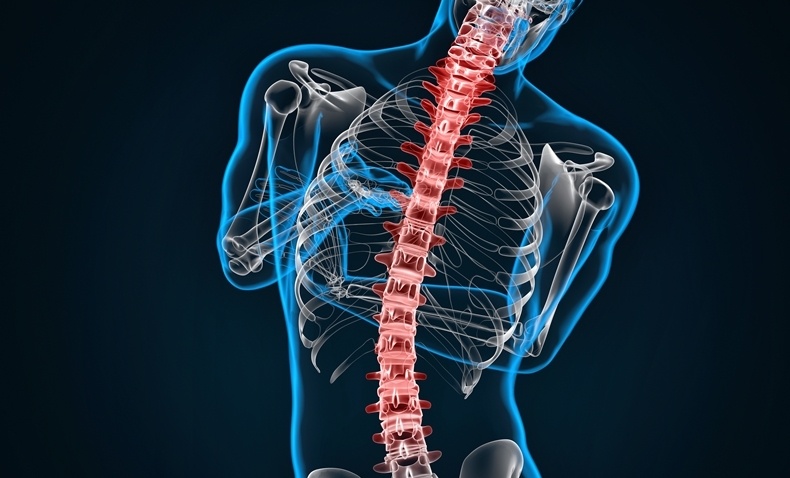
Scientists are working towards the world’s first treatment for a rare spinal condition using stem cells. The condition, called transverse myelitis, causes inflammation in sections of the spine. If they are successful in treating this condition, they might be able to use the technique to treat similar diseases including multiple sclerosis.
Transverse myelitis is a serious neurological disorder that can cause damage to the insulating material covering nerve cell fibres (Myelin). Once this material is damaged, the messages that are sent along spinal nerves can be disrupted. This causes a variety of symptoms including paralysis, muscle weakness, sensory problems, and bladder dysfunction.
Most people who suffer from transverse myelitis partially recover within a few months. However, a small minority have to deal with permanent paralysis.
The trial, to be performed at UT Southwestern Medical Center, will implant stem cells into the spinal cord in an effort to reverse paralysis. There will be nine participants in the trial initially, all of whom are suffering from the most severe form of transverse myelitis. They will receive one injection of progenitor cells in an effort to re-establish nerve signalling.
Researchers have already found that the treatment works successfully in animal tests where the stem cells managed to repair damaged myelin. They hope to replicate their earlier success in this upcoming human trial.
The trial is being funded by Q Therapeutics, the Transverse Myelitis Association, the Lyda Hill Foundation, and the M.R. and Evelyn Hudson Foundation. They will also be providing funds to help participants receive their treatments. The trial is managed by Dr. Greenberg, who leads the Conquer programs at UT Southwestern.
If the treatment is found to be successful, it might eventually be used for a wide range of other brain and spinal conditions including neuromyelitis optica and multiple sclerosis.
Source: Paralysis from Rare Disorder: Stem Cell Therapy Trial Brings Hope
{{cta(‘bc562991-216f-4d16-95b1-84ff9d2242c7’)}}


